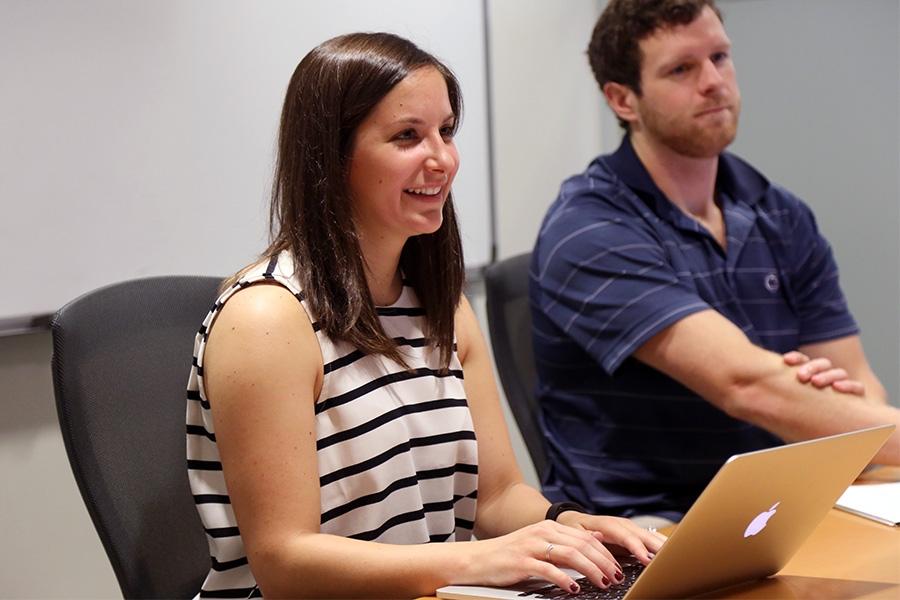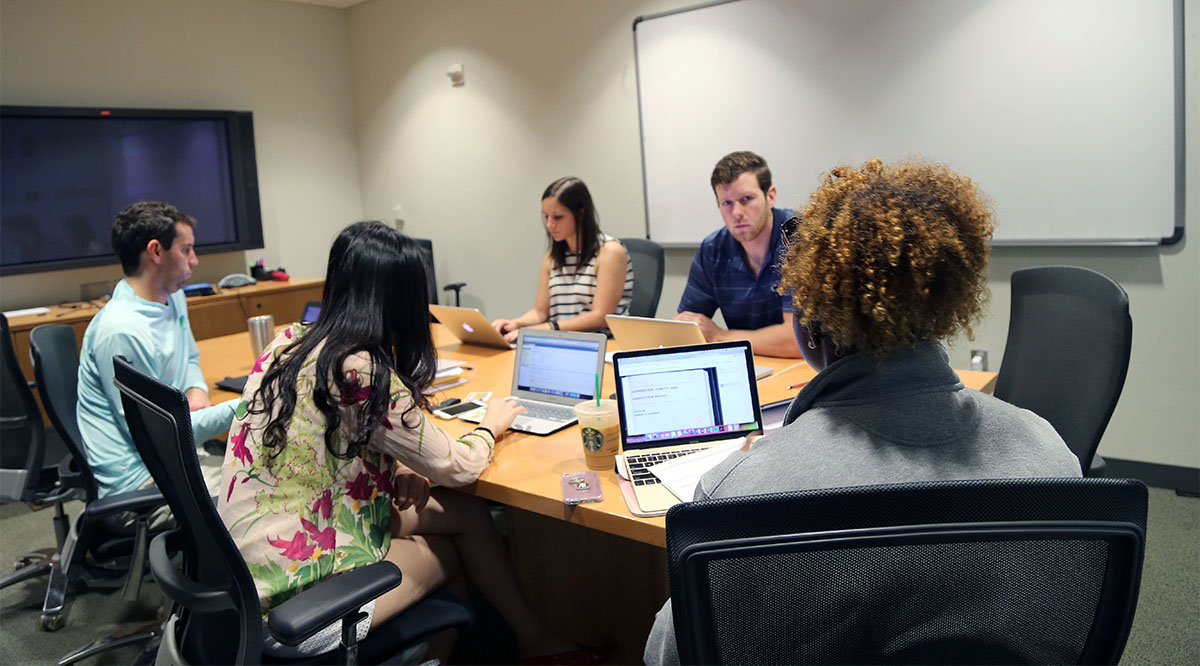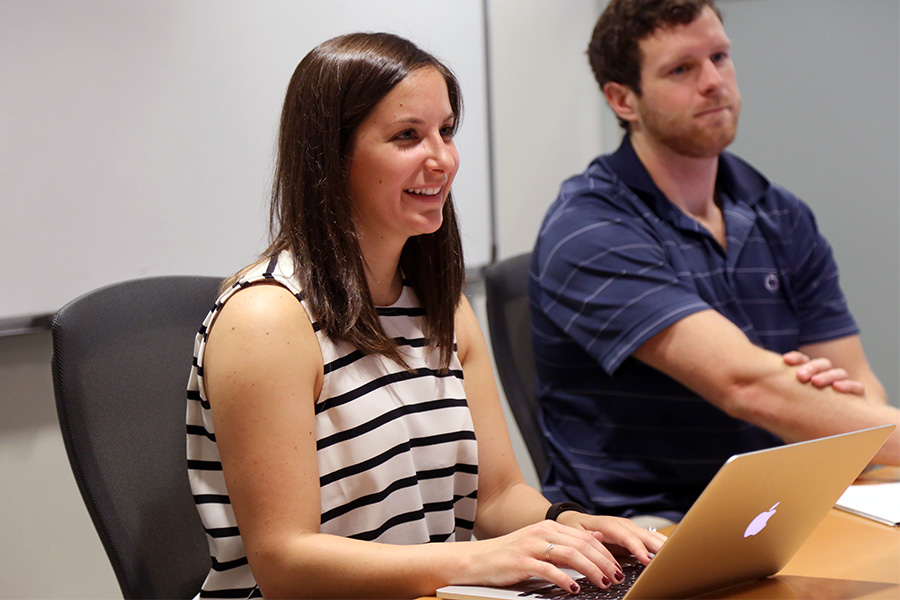
 Ph.D. student Chloe Johansen, third from left, brainstorms with her group members on an October morning. Their group is part of the Scheller College of Business' Technological Innovation: Generating Economic Results program (TI:GER). Johansen is working with two business students and two Emory University law students to commercialize her Ph.D. research. She's trying to create software to model the behavior and interdependence of infrastructure systems. The group members are, left to right, Scheller MBA student Greg Van Volkenburg, Emory law student Ruohong Yao, Johansen, MBA student Chris Bergman, and law student Victoria Sparks. (Photo: Joshua Stewart) |
America’s infrastructure systems are in terrible shape and getting worse.
That’s been the refrain from the American Society of Civil Engineers since its most-recent infrastructure report card found virtually all of the nation’s systems for moving people, energy, commerce, waste are falling apart.
The organization estimates we’ll need to spend $3.6 trillion — with a “t” — by 2020 just to repair or replace what’s failing.
Enter Chloe Johansen, a School of Civil and Environmental Engineering Ph.D. student working in Assistant Professor Iris Tien’s research group.
“We can’t fix everything that needs to be fixed at once,” Johansen said.
The solution? Create software to model these systems — she’s starting with electric, water and natural gas distribution infrastructure — and figure out the ways they depend on each other.
For instance, when a power plant goes down, what happens to water and gas networks? When water flow is interrupted, how does that affect power stations?
 Chloe Johansen is the first civil engineering Ph.D. student to participate in the Scheller College of Business' TI:GER program. (Photo: Joshua Stewart) |
“After modeling them, I’ll see what happens if something fails or some hazard occurs and then figure out critical areas to prioritize what components should be repaired,” she said.
“Identifying where those critical nodes are will help us allocate our resources effectively.”
The models she is creating also mean infrastructure owners can test scenarios to predict which parts of the system will likely fail.
“Now, we fix whatever breaks. We want to be able to be proactive,” Johansen said. “We’re looking at what could happen in the case of a flood, for example, and reinforcing or making redundancies in the system beforehand.”
With Tien’s recommendation and support, Johansen has been accepted into a Georgia Tech program that will help her take her research and turn it into a commercial venture.
Based in the Scheller College of Business, the Technological Innovation: Generating Economic Results program (known widely as TI:GER) matches a Ph.D. student with two MBA students and two law school students from Emory. The team learns about commercializing research, business fundamentals, and protecting intellectual property.
Johansen is the first civil engineering student to participate.
“If I were able to create the software and start a business that would be awesome, but what I really want is to make sure I’m solving an issue that the people in the industry want to be solved, to really work on that kind of transfer that I think is kind of lacking in civil.”
In this first semester of the program, Johansen and her team are working on market analysis for her software. Next semester, they’ll move to customer outreach, answering that question of what utilities need and how her research can help meet those needs. After that comes business development and working with an existing startup to understand what it’s like to grow a new company.
In the meantime, Johansen continues to develop her models under the supervision of Tien, her thesis adviser.
“Civil engineering solves tangible problems that everybody sees every day. Not everyone necessarily knows about their failing infrastructure, but everyone is impacted by infrastructure every day,” Johansen said.
“The civil engineering industry needs innovation, and I want to help push for that.”
